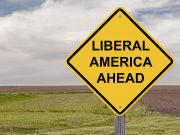America’s need to spend better is more pressing than its need to spend more.
The Welfare State's War of All Against All
I prefer to call the “welfare state” the transfer state, because that characterization leaves open the question of whether a government which engages in large-scale transfers of money from one group to another actually increases human welfare. I am skeptical, mostly because the transfer state is always in danger of creating a polity dominated by faction. It can in fact sustain the war of all against all—the very phenomenon that the state is supposed to prevent.
Our nation is in peril today, in no small part due the transformation of the United States from a nation dedicated to self-reliance to one where many are dependent on government. That change creates divisions because finite resources can support only so many dependents. The popularity among the young of Bernie Sander’s plan of free tuition, now largely adopted by Hillary Clinton, stems in no small part from youth’s recognition that they will be transferring a large portion of their earnings to elderly with little prospect of getting the same deal when they become old. It makes perfect sense to get something from the government now when the getting is good. Transfers to others beget the demand for transfers to oneself.
The infamous sign at one Tea Party Rally, “Hands off my Medicare,” is yet another sign of the inevitable conflict in the transfer state. Those on Medicare are worried with justification that the move to Obamacare will have an adverse affect on Medicare. Obamacare cut Medicare, at least in some part to permit the program to be scored as revenue neutral. More fundamentally, the more the government is involved in health care decisions, the greater the pressure for more severe price controls and other forms of rationing. Transfers to oneself beget the desire to prevent transfers to others.
Some people might object to lumping public sector unions into the transfer state. Of course, in paying employees a market wage for their duties, the government does not act as transfer agent but as employer. Most unionized public employees, however, get more than market compensation, particularly through high pension payments. And here again the transfer state is creating conflict—this time between workers on the gravy train and the hapless citizens who are taxed to pay them. This conflict is becoming more acute by the day in places like my home state of Illinois and my home city of Chicago.
The transfer state thus generates much of our disgruntlement and anger. It has replaced the market culture of mutual gain with the zero sum mentality of mutual antagonism. It is the culture in which both Hillary Clinton and Donald Trump can thrive by preying on resentments and creating more divisions.



